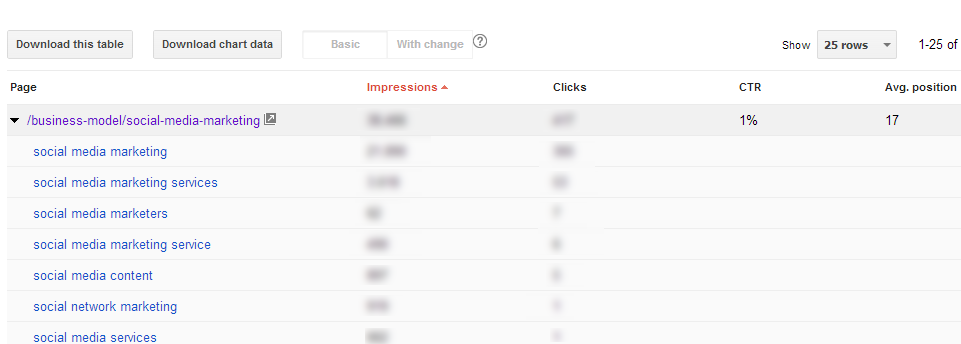To ease marketers’ woes over the disappearance of keyword data, Google is giving them more information about search traffic in their content analytics reports. In a recent Google Webmaster Central Blog post, Trends Analyst John Mueller reported that search query data will no longer be bucketed, or rounded. The search engine will instead show webmasters the raw numbers of queries that return URLs from their sites as well as search impressions and clicks for their digital content.
For instance, a webmaster who once saw reports showing that news content received 2,000,000 impressions might soon see posts actually receive more than that – 2,150,067 impressions.
“We hope this makes it easier for you to see the finer details of how users are finding your website, and when they’re clicking through,” Mueller wrote.

What will make it even easier for marketers to analyze web content performance is that the search queries report also provides information about which keywords brought internet users to individual pages. Webmaster Tools Page reports now include the number of clicks per keyword for different URLs.
This could be a workaround for missing keyword data in Google Analytics reports, which the search engine began to encrypt, nearly in its entirety, in the third quarter of 2013. Brafton reported that although this development would force SEOs to look for content analytics data in new places, it wouldn’t render them helpless, listing Webmaster Tools as a viable source of information.
However, Brafton has also stood by the idea that marketers should be looking at the bigger picture when analyzing content strategies. The aim must be to learn which approaches resonate best with visitors, while also driving them toward goal completions, and there are many metrics that will demonstrate content’s effectiveness. The amount of time people spend on certain pages, bounce rates and conversion rates will all give marketers the insights they need to create targeted campaigns that generate more ROI, although Google’s latest updates won’t hurt.





